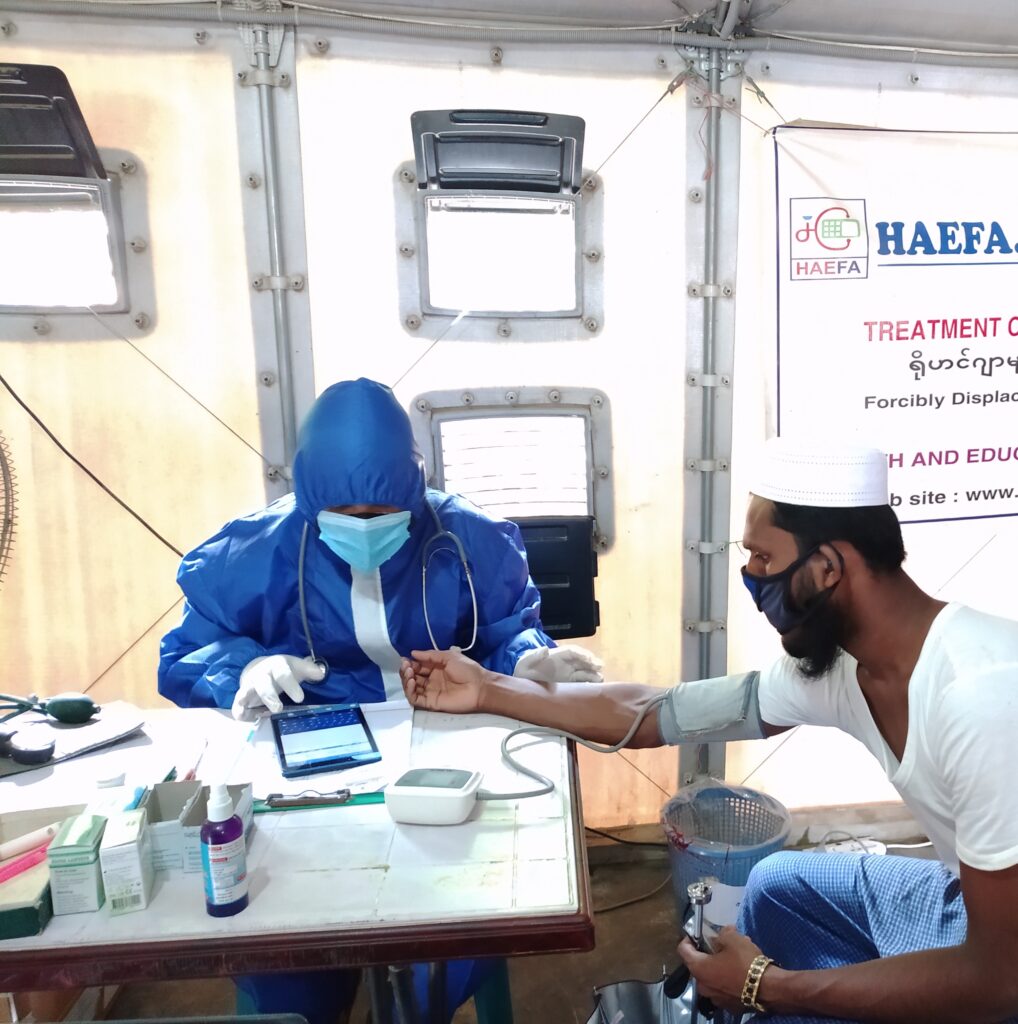Health and Education for All (HAEFA) is a non-profit organization initially founded as a response to the poor health and working conditions of garment workers in Bangladesh. This program was implemented for providing volunteer-based charitable healthcare to the workers of the garment factories in Bangladesh since 2013 and later to the Rohingya refugees in Cox’s Bazar since the most recent exodus of the Rohingya from Myanmar in 2017.
These projects have provided free treatment and medicines as well as health education, nutrition and personal hygiene—including feminine hygiene— training to the underserved population and the service providers. HAEFA designed a screening program for common noncommunicable diseases (NCDs) among factory workers. The screenings focus on diabetes, hypertension, chronic obstructive pulmonary disease (COPD), malnutrition, pregnancy and related complications (preeclampsia), and tuberculosis (TB). In order to gain the employers’ cooperation, HAEFA had to ensure that the workers were not wasting productivity hours by doing the screenings. The format that resulted was a brief series of tests that took in their entirety seven minutes to complete.
HAEFA developed a model made up of four stations: registration; height and weight; blood pressure and finger stick for blood sugar and hemoglobin analyses; and physician examination. Each station uses a handheld Android tablet as an EMR with software programmed by HAEFA called NIROG (meaning “absence of disease” or “good health”) to collect the information of each patient under a unique identifier. The patients also each have their own bar-coded ID card for retrieval of the medical records from the previous visits and follow up care.
The encrypted, HIPAA-compliant data is uploaded to the cloud and can be accessed by authorized healthcare providers from anywhere in Bangladesh. HAEFA has screened more than 30,000 garment factory workers since its founding in 2013 using the entirely paperless NIROG EMR system. With the influx of Rohingya refugees to Bangladesh in 2017, HAEFA extended its attention to this vulnerable population and began using and modifying the system developed for the garment workers to screen and provide quality healthcare to the Rohingya people for NCDs and other chronic diseases.
In the Rohingya FDMN (forcibly displaced Myanmar nationals)/refugee camps, HAEFA’s two medical centers in Kutupalong (Camp 1W) and Balukhali (camp 9) have provided free medical care, follow up and referral to more than 130,000 Rohingya refuges and Bangladeshi people in Ukhiya, Cox’s Bazar since October 2017.

